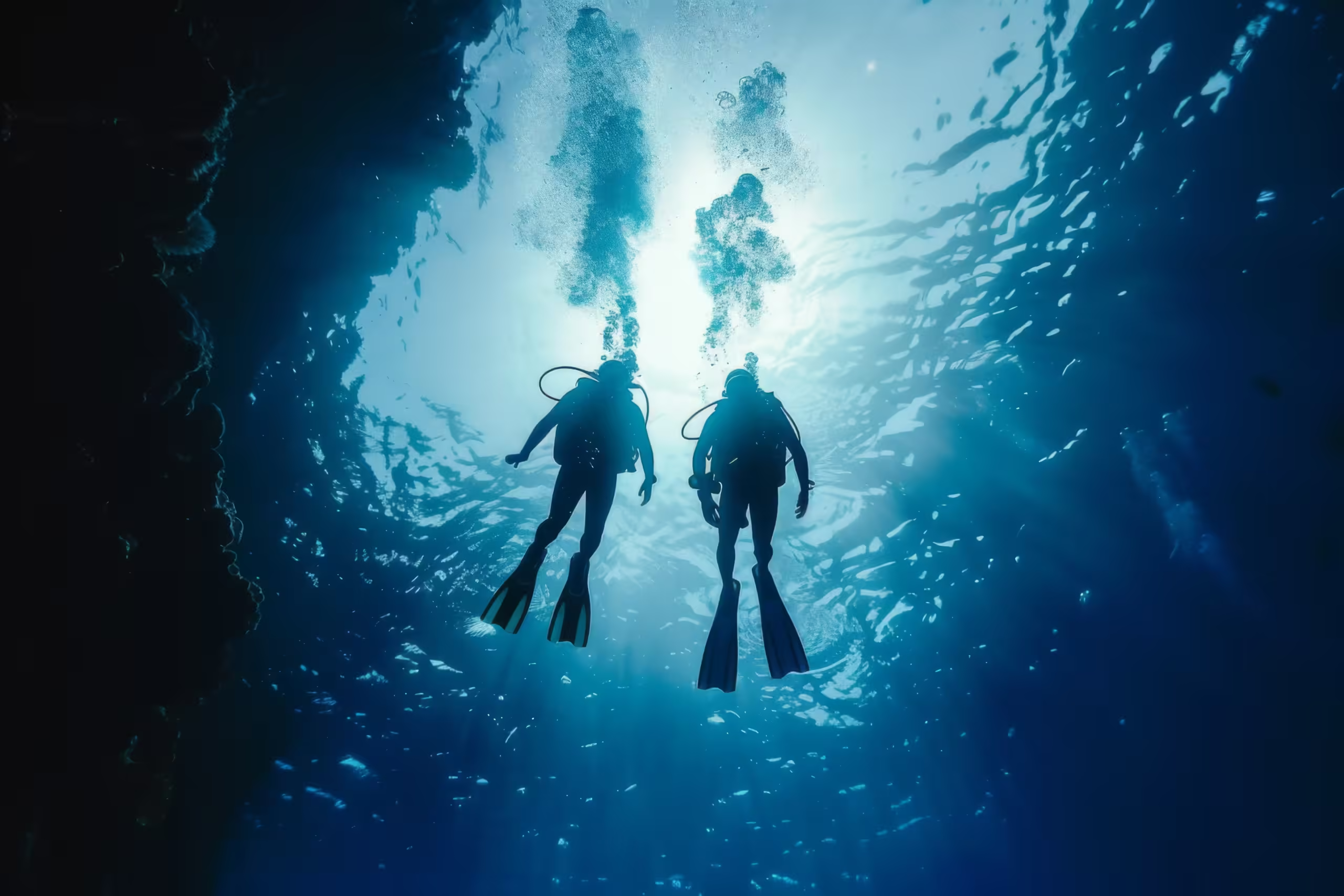Freediving, a form of underwater diving that relies on holding one’s breath rather than using breathing apparatus, has been gaining increasing popularity around the world. This immersive and exhilarating activity appeals to a diverse range of individuals, from thrill-seekers to those seeking tranquility underwater. In this blog, we will explore what freediving is, its history, and why it has captured the imagination of so many.
What is Freediving?
Freediving, also known as breath-hold diving, is the practice of diving underwater without the use of scuba tanks or other breathing equipment. Instead, freedivers rely on holding their breath for extended periods. This form of diving requires a combination of physical training, mental focus, and breath control to explore underwater environments.
Key Aspects of Freediving:
- Breath-Holding: Freedivers take a deep breath before diving and rely on their lung capacity and training to stay underwater.
- Diving Techniques: Techniques vary from static apnea (holding breath while stationary) to dynamic apnea (moving horizontally) and constant weight diving (diving to depths with a fixed weight).
- Equipment: Freediving equipment is minimal, often including a wetsuit, fins, and a mask. More advanced divers may use a wetsuit, weight belt, and specialized fins.
The Growing Popularity of Freediving
Freediving is seeing a surge in popularity for several compelling reasons:
1. Connection with Nature:
Freediving allows individuals to experience the underwater world in a more intimate way than scuba diving. Without the distraction of heavy equipment, divers can move more freely and observe marine life up close.
2. Mental and Physical Benefits:
Freediving requires focused breathing and relaxation techniques, which can reduce stress and improve mental clarity. It also offers a full-body workout, enhancing cardiovascular health and muscle tone.
3. Minimal Equipment:
Compared to scuba diving, freediving requires less equipment and preparation. This simplicity makes it more accessible for beginners and those looking for a more spontaneous diving experience.
4. Environmental Awareness:
Freedivers often develop a deeper appreciation for marine ecosystems, which can lead to greater environmental consciousness and efforts to protect our oceans.
5. Adventure and Challenge:
Freediving offers a unique sense of adventure and personal challenge. The pursuit of deeper dives and longer breath-hold times can be highly motivating and rewarding.
History of Freediving
Freediving has a rich history that spans centuries. Here’s a brief overview of its origins and development:
Ancient Origins:
The practice of freediving dates back to ancient times when early humans used breath-hold diving techniques to gather food and explore underwater environments. Ancient Greek and Roman records mention the use of diving bells and early diving suits.
Modern Freediving:
In the 20th century, freediving evolved into a sport with the establishment of competitive organizations and the development of standardized techniques. The introduction of advanced training methods and safety protocols has made it a safer and more popular activity.
Notable Freedivers:
Freediving has been popularized by individuals such as Jacques Mayol, a pioneer in the sport, and Natalia Molchanova, a world champion. Their achievements have inspired many to explore the depths of freediving.
Scuba Diving vs. Freediving: Understanding the Differences
While both scuba diving and freediving offer unique underwater experiences, they have distinct differences:
Scuba Diving:
- Equipment: Uses tanks and other breathing apparatus.
- Duration: Allows for longer dives with continuous air supply.
- Technique: Involves managing buoyancy and equipment.
Freediving:
- Equipment: Minimal equipment, focusing on breath-hold.
- Duration: Limited by breath-holding capacity.
- Technique: Emphasizes breath control and relaxation.
Conclusion
Freediving offers a unique and captivating way to explore the underwater world, combining physical challenges with a deep connection to nature. Its growing popularity is a testament to its appeal as a sport and recreational activity. Whether you’re a seasoned diver or new to the practice, freediving provides an unparalleled opportunity to experience the ocean in its most natural and serene form.
Breath control is the most crucial skill for freediving. Mastering the ability to hold your breath and remain calm underwater is essential for successful freedom.



0 Comments